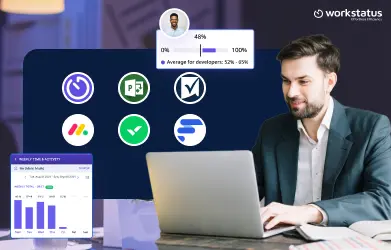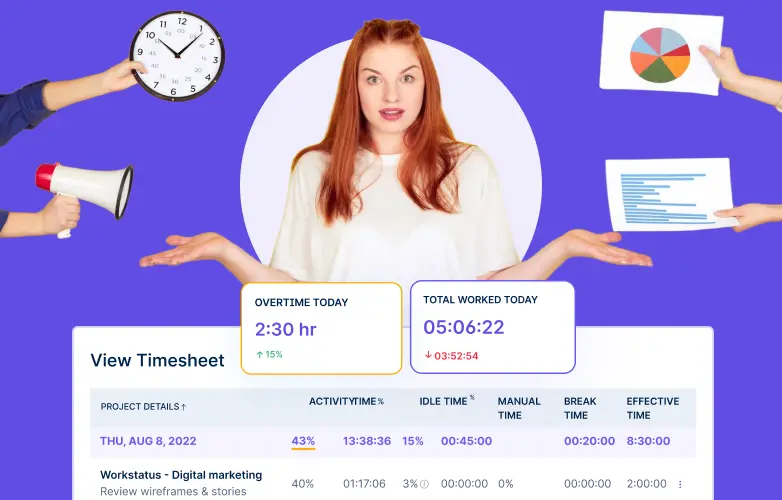Table of Contents
Introduction
Get ready to discover the latest ethical employee monitoring software tools of 2025!
Did you know?
42% of employees express concerns about the invasion of their privacy due to monitoring software.
Companies that use ethical monitoring gain an advantage by treating their employees fairly while keeping track of work. Ethical monitoring helps follow the rules, keeps the workplace fair, and ensures everyone feels respected.
Ethical monitoring is vital for companies. Without the right tools, they face:
- Invading employee privacy
- Losing trust between bosses and workers
- Problems following laws and rules
- Making the workplace unhappy and less friendly
This blog post will share the best ethical monitoring tools that can solve these problems.
These tools make keeping an eye on work fairer, help everyone work better, and change how companies watch over their workers!
Let’s dive in!
What is Ethical Employee Monitoring?

Ethical employee monitoring is keeping an eye on how people work at a job fairly and respectfully.
It’s like having a system to watch over work tasks without invading someone’s privacy or making them uncomfortable.
This kind of monitoring follows the rules and treats everyone at work fairly. It helps managers understand how work is going without being too nosy or unfair to the employees.
Ethical monitoring is about creating a good balance between keeping track of work and respecting people’s rights and feelings at the workplace.
Top 4 Benefits Of Ethical Employee Monitoring
Ethical employee monitoring brings several advantages to employers and employees by ensuring fairness, transparency, and productivity in the workplace.
Here are the top four benefits explained in simple terms:
- Maintaining Trust and Fairness: Ethical monitoring helps build trust between bosses and workers. It ensures that everyone knows what’s being tracked at work and why. When employees feel their privacy is respected and that monitoring is fair, they trust their employers more. This trust creates a better work atmosphere where people feel valued.
- Improving Work Productivity: Ethical monitoring can help employees work better. When managers monitor how work is going, they can provide support or resources when needed. It helps identify problems early on and find ways to solve them, ultimately boosting productivity.
- Following Rules and Guidelines: Ethical monitoring helps companies follow the rules and laws about work. It ensures that monitoring is done in a way that respects everyone’s rights. Companies using ethical tracking are more likely to stick to the rules and avoid legal problems.
- Enhancing Communication and Collaboration: Ethical monitoring encourages better communication between bosses and workers. It allows for clearer discussions about work tasks and performance. Also, when everyone knows what’s being tracked and why, working together as a team becomes easier toward common goals.
Ethical employee monitoring aims to create a balanced environment where work is tracked for the company’s and its employees’ benefit.
Best Practices For Ethical Monitoring 2025
Here are some best practices for ethical monitoring in the workplace:
- Transparency: Be open and clear about what is being monitored and why. Let employees know what data is being collected, how it will be used, and how it benefits both the company and the employees.
- Respect Privacy: Respect the privacy of employees by only monitoring what’s necessary for work-related purposes. Avoid invasive monitoring that tracks personal activities or information unrelated to work.
- Set Clear Policies: Establish clear guidelines and policies regarding monitoring practices. Define acceptable and unacceptable behavior in terms of monitoring. Ensure these policies comply with legal regulations and respect employee rights.
- Consent and Communication: Seek consent or inform employees before implementing any new monitoring tools or systems. Encourage open communication about the purpose of monitoring and its benefits to the company and the employees.
- Data Security: Ensure the security of the collected data. Implement measures to protect the information gathered from monitoring, preventing unauthorized access or misuse.
- Limit Data Collection: Collect only relevant data necessary for work purposes. Avoid gathering excessive or irrelevant information that does not contribute to work-related goals.
- Regular Review and Evaluation: Review the monitoring practices and ensure they align with ethical standards and company objectives. Evaluate the effectiveness and impact of monitoring on both productivity and employee well-being.
- Training and Awareness: Train employees on monitoring tools’ purpose and proper use. Create awareness about the benefits of monitoring while addressing any concerns or misconceptions.
These practices will help organizations maintain a balance between monitoring productivity and respecting the rights and privacy of their employees, fostering a fair and conducive work environment.
Top 15 Ethical Employee Monitoring Software Tools 2025
Here is the list of the best ethical employee monitoring software tools of 2025:
1. Workstatus

Workstatus is an AI-powered ethical employee monitoring software to streamline work processes while prioritizing employee privacy and data integrity.
Get a comprehensive solution for businesses aiming to enhance productivity, manage tasks efficiently, and maintain a respectful work environment.
With a focus on transparent monitoring practices and adherence to privacy regulations, Workstatus ensures a balanced approach to employee monitoring, fostering trust and efficiency within the workplace.
Here are its most advanced features to help you monitor the daily work and non-work related activities of your teams:
- Active Screenshots
Workstatus takes occasional screenshots of the employee’s screen during work hours.
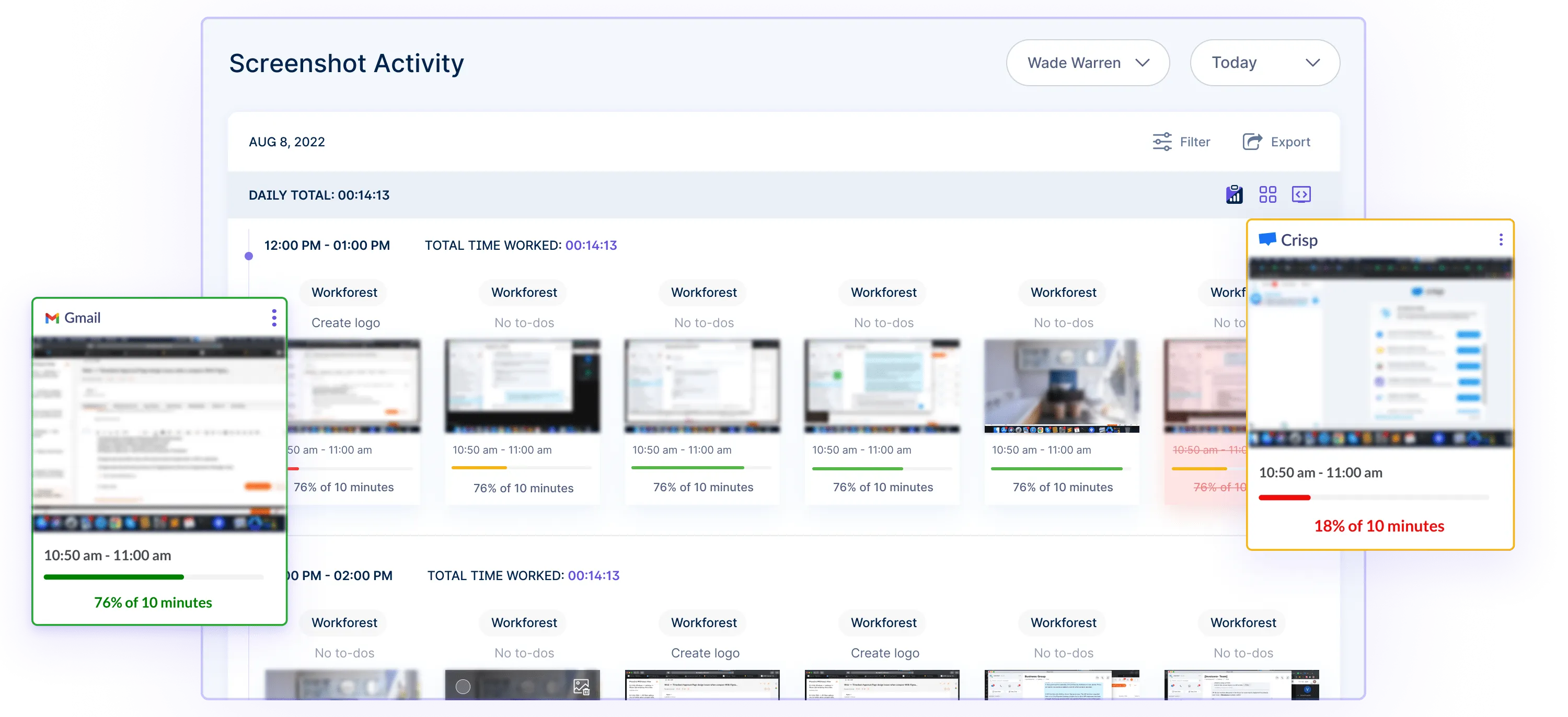
It helps managers see what employees are working on without constantly watching them.
- App & Website Monitoring
App and website monitoring helps you track which apps and websites employees use during work hours.
![]()
It helps managers understand where time is spent and ensures work-related focus.
- Performance Tracking
Workstatus keeps a record of how much work employees complete and how efficiently they work.
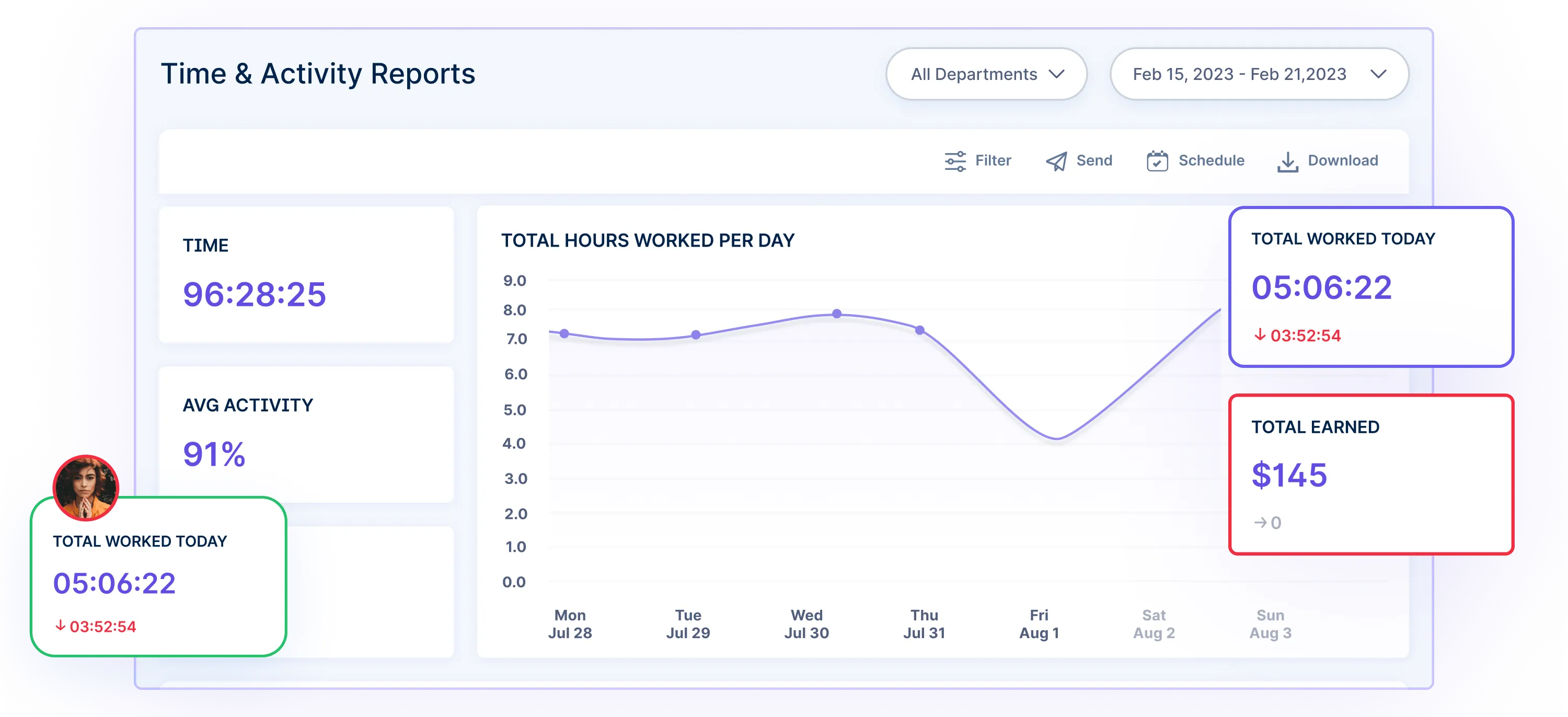
It helps managers see who’s doing well and who might need extra support.
- Habit Tracker App
Habit tracking encourages employees to develop good work habits as it lets them set goals, track their progress, and achieve them.
![]()
- Reports & Analytics
Workstatus generates detailed reports and analyses based on employee activities.

2. InterGuard

InterGuard provides a comprehensive suite of monitoring tools tailored for businesses. It encompasses behavior analytics, user activity tracking, and data loss prevention.
This software offers a nuanced approach to monitoring, allowing employers to gain insights into employee behavior without compromising privacy.
InterGuard aids in identifying potential security threats, preventing data breaches, and ensuring adherence to company policies, making it a valuable asset for maintaining a secure work environment.
3. Veriato

Formerly recognized as SpectorSoft, Veriato specializes in behavior analytics, user activity monitoring, and insider threat detection.
This tool helps companies understand employee behavior patterns, track productivity, and detect potential risks within the workforce.
With a focus on providing insights into employee activities without invading privacy, Veriato assists in maintaining a secure work environment while respecting individual rights and fostering a productive workplace culture.
4. ActivTrak

ActivTrak stands out for its emphasis on understanding employee productivity and behavior while respecting privacy.
This software provides insights into how employees utilize their time at work, offering managers valuable data to optimize workflows and identify potential areas for improvement.
By transparently monitoring work-related activities, ActivTrak enhances productivity without compromising employee privacy, ensuring a balanced approach to workplace monitoring.
Read more – Searching For Best ActivTrak Alternative?
5. Workpuls
Workpuls offers a suite of tools aimed at boosting workplace productivity.
Its features include productivity tracking, attendance management, and project analysis.
This software helps organizations track work hours, monitor task progress, and analyze project performance, facilitating better work management and resource allocation for improved efficiency.
6. StaffCop

StaffCop focuses on user behavior analytics, productivity tracking, and data protection.
By tracking user behavior and productivity, StaffCop assists in creating a secure work environment while maintaining a respectful approach to employee monitoring.
7. TSheets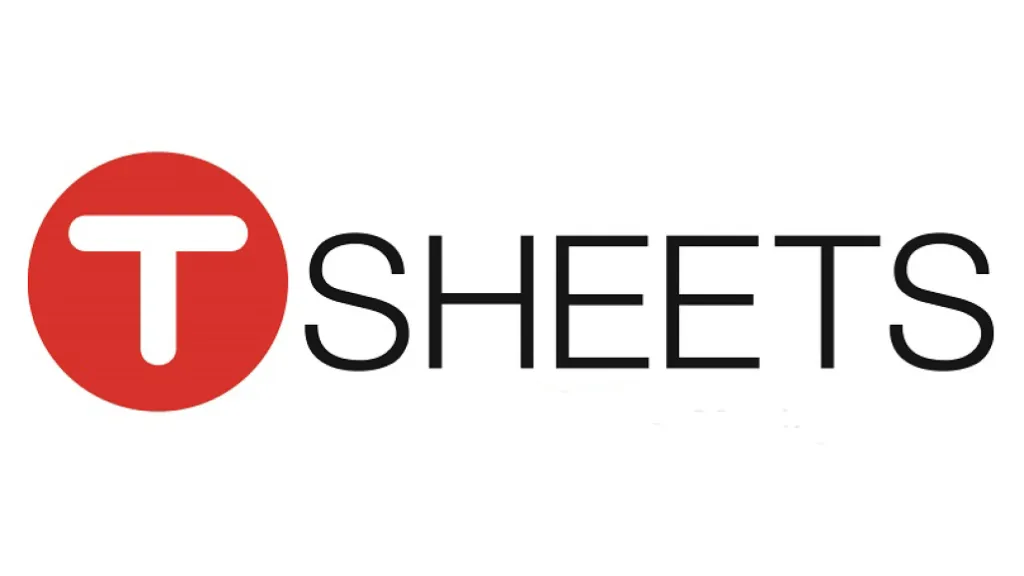
TSheets specializes in time tracking, scheduling, and workforce management solutions.
This tool aids in managing employee schedules, tracking work hours, and streamlining workforce management processes.
TSheets simplifies timekeeping, enabling businesses to manage their workforce efficiently.
8. Kickidler

Kickidler offers employee monitoring tools focused on productivity analysis and insights into user activity.
It assists in tracking employee performance, monitoring productivity levels, and analyzing work patterns, allowing employers to make data-driven decisions to optimize workflow efficiency.
9. TimeCamp

TimeCamp provides time tracking and project management solutions, allowing businesses to monitor work hours, track project progress, and manage tasks efficiently.
This tool aids in enhancing productivity and streamlining project management processes.
10. WorkTime
WorkTime specializes in time tracking, productivity analysis, and monitoring internet usage.
It helps employers track employee work hours, analyze productivity trends, and monitor internet usage for effective work management.
11. VeriClock

VeriClock focuses on time tracking and workforce management solutions.
With a strong emphasis on transparent monitoring practices, VeriClock offers a user-friendly interface for efficient timekeeping and streamlined workforce management processes.
It emphasizes transparent monitoring practices, aiding in timekeeping and workforce management processes.
12. Work Examiner

Work Examiner is a robust software providing internet and computer usage monitoring tools for employers seeking comprehensive oversight of employee activities.
It enables tracking of internet usage, application usage, and computer activities to enhance workplace efficiency.
Work Examiner facilitates detailed reports on website visits, application usage time, and productivity metrics, allowing employers to analyze trends and ensure optimal use of work hours while maintaining compliance with workplace policies and regulations.
13. NetVizor

NetVizor offers a comprehensive suite of employee monitoring solutions encompassing real-time surveillance and behavior analytics.
This tool aids employers in understanding employee behavior patterns, productivity levels, and adherence to company policies.
With features like real-time monitoring, content filtering, and behavior analysis, NetVizor provides valuable insights into employee activities while focusing on compliance and security within the workplace environment.
14. OsMonitor

OsMonitor provides detailed insights into employee productivity while adhering to ethical and transparent monitoring practices.
This software enables employers to monitor computer usage, track application usage, and analyze internet activity to ensure a productive work environment.
OsMonitor offers comprehensive reports on employee activities, allowing employers to make informed decisions for enhancing productivity and maintaining a conducive workplace atmosphere.
15. SpyAgent
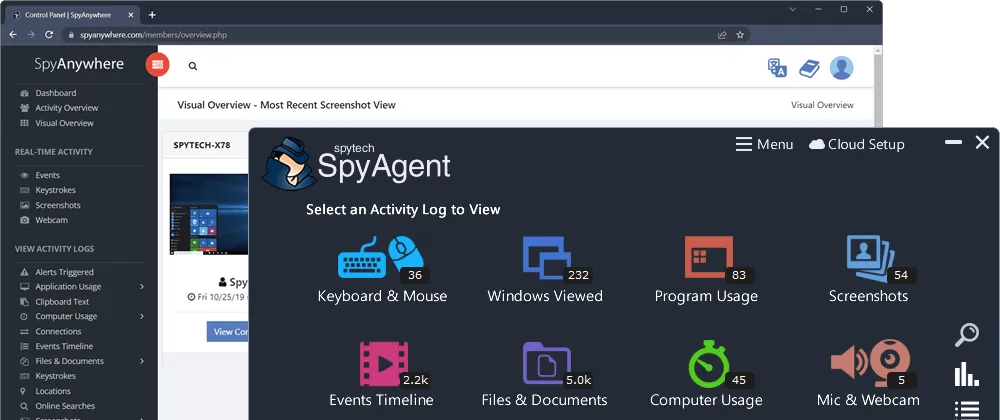
SpyAgent is a comprehensive monitoring solution, including keystroke logging, activity tracking, and employee behavior analysis.
Employers can utilize SpyAgent to gain insights into employee behavior, track application usage, monitor web browsing activities, and detect potential inefficiencies.
This tool offers detailed reports and real-time monitoring, enabling employers to understand employee productivity levels, identify any misuse of resources, and implement measures to enhance overall workplace efficiency and security.
Legal And Compliance Considerations
Legal and compliance considerations refer to abiding by certain laws that apply to a specific activity or industry.
In the business context, it means ensuring the company’s actions, practices, and operations abide by the laws and regulations set by the government or relevant authorities.
These considerations are crucial to ensure the following:
- Businesses operate ethically
- Avoid legal troubles or penalties
- Protect the rights of employees
- Maintain a good reputation
Companies need to stay updated with legal requirements, such as labor laws, privacy regulations, data protection laws, and industry-specific regulations, and ensure their operations comply with these standards to avoid legal issues.
You must be wondering. Is Workstatus compliant with data certifications?
Yes. Workstatus is secure and compliant with the following data center certifications:
- ISO 9001 Quality Management
- ISO 14001 Environmental Management
- ISO 22301 Security and Resilience
- ISO 27001 Information Security Management
- ISO 50001 Energy Management
- SOC 2 Type II Data Security And Privacy
- PCI-DSS Information Security
Workstatus ensures the integrity and confidentiality of data, providing a reliable platform for secure work.
Looking Into Employee Perspectives
Employees’ feelings about ethical monitoring practices at work can vary significantly, encompassing various viewpoints:
- Privacy Concerns: Some employees might feel uneasy or concerned that monitoring could invade their privacy, affecting their trust in the company.
- Productivity and Security: Others may see it as a way to enhance productivity or maintain a secure work environment.
- Trust and Transparency: Transparency in monitoring practices can build trust among employees, fostering a more supportive work culture.
Listening to and addressing employee perspectives on ethical monitoring is vital. It allows companies to balance monitoring for productivity and respecting employees’ rights and privacy.
Engaging in open communication, explaining the purpose behind monitoring, and addressing concerns can help create a more supportive and transparent work culture regarding monitoring practices.
Ultimately, considering and respecting employee feelings and viewpoints plays a significant role in establishing ethical monitoring practices in the workplace.
Future Trends And Predictions
Future trends in ethical employee monitoring include several key aspects:
- Better Privacy Technologies: Advancements will focus on developing more sophisticated tools to safeguard employee privacy while allowing effective monitoring.
- AI-Driven Analytics: Future systems will likely employ AI for subtle behavior analysis, offering productivity insights without compromising individual privacy.
- Transparency and Consent: Companies will emphasize clearer policies and communication, ensuring employees understand and consent to monitoring practices.
- Employee Well-being: Monitoring systems may evolve to consider productivity, employee stress levels, and work-life balance.
- Evolving Legal Frameworks: Anticipated changes in laws and regulations will aim to balance workplace monitoring and protecting employee privacy rights.
These trends indicate a future where technology and ethical considerations harmonize, fostering a workplace that respects productivity needs and employee privacy and well-being.
Closing Thoughts
In the evolving landscape of ethical employee monitoring software, respecting privacy while enhancing workplace productivity remains pivotal.
As we stride into 2025, the focus on transparent monitoring practices, employee well-being, and aligning with ethical standards stands paramount.
The future of employee monitoring lies in striking a delicate balance between productivity optimization and upholding individual rights, fostering a work environment built on trust, transparency, and mutual respect.



